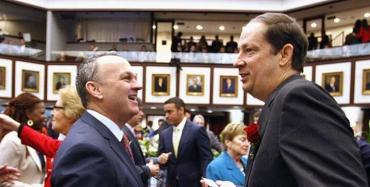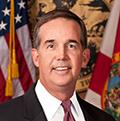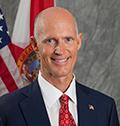
The words "first, do no harm" should be embedded in every legislative swearing in. What a shame it's too late for the 2017 legislative session.
Harm was done.
In an $83 billion budget presenting so much opportunity, many Floridians, young and old, were overlooked or underserved.
We begin with a footnote:

Senate President Joe Negron will return to the Treasure Coast this week a hometown hero. Barring Gov. Rick Scott's veto, which few expect, a reservoir south of Lake Okeechobee will be fast-tracked, giving coastal communities hope that a few years down the road, Lake Okeechobee discharges and the algae blooms they create will be a thing of the past. It was one of his top priorities, but also a very large ask.
This accomplishment does not put Negron on Sunshine State News' list of session winners.
The deal the Stuart Republican struck to make the reservoir happen -- thankfully, one that at least can conform to the Comprehensive Everglades Restoration Plan rather than Negron's original, $2.5 billion plan created by the Everglades Foundation -- simply cost the people of Florida too much.
Had the session been a war, the casualties would be unspeakable. Pre-K-12, hospitals and health needs, social service programs of all kinds, Florida Forever, the heavily subscribed state college system in a time when Florida is booming -- all were underfunded, all sacrifices to make the budget work primarily for Negron's priorities.
Negron's other priority was boosting the university system, requiring these institutions of higher learning to offer block tuition so students can pay a flat fee per semester rather than a credit-hour charge. Again, he got what he wanted. And he fluffed up the Bright Futures scholarships program, too. But the strong Bright Futures framework then-Rep. Ken Pruitt put in place in 1997 was already there. All Negron had to do was infuse it with more money.
The Senate president is left off all lists on this page, but he is an important footnote for the opportunities that died on his watch, and why we begin with it.
Following now is Sunshine State News' "2017 Legislative Session's Winners and Losers."
WINNERS

House Speaker Richard Corcoran. Like Negron, the speaker put his own agenda ahead of the people of Florida. But he out-and-out, masterfully dictated the terms of the session and wound up with exactly what he wanted. And he is overwhelmingly the biggest winner in Tallahassee over the past three months. Corcoran, R-Land O'Lakes led the charge at the end of January with a feel-good ethics reform package, followed it up with an assault on the governor's priorities, Enterprise Florida and Visit Florida, then finished with shrewd horsetrading behind closed doors that virtually picked the Senate's pocket.

Sen. Jack Latvala. During one of the most dysfunctional Florida sessions in memory, take-charge Latvala, Senate appropriations chair, was thankfully always the adult in the room, instrumental as a liaison between the Senate and the governor, and the force that kept his president's priority reservoir moving forward when other senators balked. More than anything, the Clearwater Republican maintained the sanctity of the institution he represents. And he fulfilled the promise he made to give state employees a pay raise. In fact, the pay raise was his top priority. The legislation, SB 7030, is tied to pension reform, representing a compromise between the Senate and the House. The House has been pushing for state pension changes for the last half-dozen years. By all accounts, Latvala's deft political skills pretty much saved the session's end game from becoming a train wreck.
Americans for Prosperity. No group has been more supportive over the years of keeping the government out of the private sector than AFP. With Enterprise Florida and Visit Florida taking hits this year, AFP has every right to take a bow -- AFP has been chipping away at it for a long time. Chris Hudson and his team have built one of the most effective operations in the Sunshine State, knocking on doors and unleashing direct mail pieces focused on the issues. Legislators are starting to take note as AFP continues to remain vigilant on issues ranging from the budget to its support of the “whiskey and Wheaties” legislation. Unlike many groups in Florida politics, the state AFP’s reach extends far beyond Capital Circle in Tallahassee as the legislative session clearly showed.
School Choice. Betty DeVos brought the national spotlight to Florida’s school choice programs. Thanks to the Legislature, those programs are about to expand. HB 15, which expands the Florida Tax Credit Scholarship and the Gardiner Scholarship, sailed through the House at the end of last week and moved through the Senate. Add House Speaker Richard Corcoran’s “school of hopes” proposal giving more students options to leaving failing schools to attend high performing charter schools, and school choice advocates had a good session. Teachers’ unions and other opponents of education reform thought the emergence of DeVos on the national stage would help their cause but so far in Florida, it hasn’t gone their way.

Jeff Atwater. As he heads out of Tallahassee to take a job at Florida Atlantic University, Florida’s CFO’s stock has never been higher. Part of that is because Atwater is stepping down instead of pursuing higher office. But much of this goodwill comes from Atwater’s solid tenure as state CFO. During an often contentious legislative session, Atwater stood above it, continuing the work he has been doing for seven years now, including helping firefighters across the state and supporting efforts to increase financial literacy education for children throughout Florida. Atwater also continued his often overlooked efforts against insurance fraud. Tallahassee, indeed all of Florida, will miss his service. One place where Atwater is already missed is the Florida Senate. When he was Senate president in 2009-2010, Atwater did a far better job than any of his successors in leading the often quarrelsome chamber. The fact that he did so while running for statewide office makes his tenure as Senate president even more impressive. While it is very unlikely he will ever serve as governor or in the U.S. Senate, Atwater has left a mark in Florida politics that he should be proud of.

Reps. Jay Fant and Paul Renner. These two First Coast Republicans will always be linked, thanks to Fant beating Renner by two votes in a primary for a House seat back in 2014. Both of them had good sessions this year, despite some setbacks. While he wasn’t able to fend off Richard Corcoran’s efforts to gut Enterprise Florida, Fant raised his stature considerably by being one of that group’s chief defenders. That might not endear Fant to the tea party or libertarians, but it did raise his stature with the business community, no small thing as whispers begin to grow that he could make a run for higher office in the future. Renner was on the opposite side of Fant and helped boost his own stock for the future, though whether that turns out to be making a play to be speaker of the House or running for Congress if Ron DeSantis makes another bid for higher office remains to be seen. Both Fant and Renner were successful in using the session’s limelight to raise their profiles even as they were in opposing corners.

Rep. Amy Mercado. Sure, the Orlando Democrat missed the vote on the “whiskey and Wheaties” bill, which passed 58-57 in the Florida House. Mercado could have killed the bill with her vote but she had gone to the hospital after her parents -- her father happens to be state Sen. Victor Torres -- were in a car crash. But Mercado stood out more than most House freshmen, even being named vice chairwoman of the new Progressive Legislative Caucus. As the Puerto Rican population continues to grow in Central Florida, some Democrats from that community will continue to rise. Certainly Darren Soto has done that, moving up from Orlando’s Civil Service Board to both chambers of the Legislature and now to Congress at a dizzying pace, especially considering he is still only 39. Mercado seems to be following in Soto’s footsteps, something only confirmed by a strong month of fundraising before session began. Despite missing the “whiskey and Wheaties” and changing her position on a medical marijuana bill, Mercado had a solid session. She did not damage her chances of moving up the political ladder, no small thing for a freshman in the minority.

Farmers in the Glades communities. They didn't get the expedited dike fix, but citizens of Belle Glade, Pahokee and South Bay, where unemployment is often the highest in the state, no longer have to worry about a reservoir removing 60,000 acres of productive farmland and closing another sugar mill. The area is home and represents a way of life for thousands. It is the epicenter of Florida's agricultural production -- primarily sugar cane and 30 types of vegetables -- with 500,000 acres annually harvested. With the strong leadership of Senate Minority Leader Oscar Braynon, D-Miami Gardens marshaling his 15 caucus members to speak as one, making sure the Legislature wasn't voting away Glades residents' jobs, Negron and SB 10 sponsor Sen. Rob Bradley might not have added an economic component to the bill, to include airport development and jobs on reservoir construction crews.
SPLIT DECISION

Gov. Rick Scott. The session itself was unkind to the governor. He was virtually stripped of his tools for improving Florida's economy and building jobs. All at the hands of a House that looked at Enterprise Florida and Visit Florida as synonymous with waste and "corporate welfare" and a Senate president who desperately needed to make a deal for a reservoir. Instead of $100 million for Visit Florida, Scott received $25 million; instead of $200 million for dike repairs, he got $0; instead of $85 million for economic incentives, he got another goose egg; and the $618 million he requested for tax cuts was reduced to $75 million. Had that been all that happened to him, Scott might be leading the list of all-time Florida legislative losers. But he fought back publicly, produced ads, wrote newspaper op-eds, and stumped across the state defending his economy-boosting programs. What it did was elevate his profile. And like low, rolling thunder, he came roaring back, sending his approval rating to heights it had never been before. Bottom line: Enterprise Florida and Visit Florida didn't hurt the governor personally, as it turns out. If anything, what transpired has enhanced his standing with voters. Scott can soar into the U.S. Senate race on higher approval numbers than anything he's seen in the last seven years.
LOSERS
Medical Marijuana. A bill that should have flown through the Legislature -- considering 71 percent of Floridians voted for the constitutional amendment that legalized medical marijuana -- died Friday night when the House and Senate adjourned without acting on it. Negotiations were accelerated the last week, but the two chambers couldn't agree on how many dispensaries the state should have. The failure to pass a bill leaves implementation of the amendment to state health officials and patients waiting still many months away from relief. If attorney John Morgan who paid millions in two attempts to get the amendment on ballot is disgusted and vocal, who can blame him?
Gaming. When the Senate wouldn't budge on giving slot licenses to the eight counties that voted for gambling, and the House saw the Senate position as gambling expansion, gaming negotiations were pronounced dead for another session. Even the lure of money from the Seminole Tribe of Florida didn't do the trick. There still is no new Seminole compact. Try as he did, Sen. Galvano said he began to realize early last week that prospects looked dim for a completed deal this session. The more time that passes without a contract, the more probable it is that the state will lose money in the final deal.

Guns. The only one of several gun bills Second Amendment supporters, including the National Rifle Association, could hang their hat on was a measure lawmakers approved at the 11th hour to shift a key burden of proof in “stand your ground” self-defense cases. Otherwise, it was a frustrating session. Other gun issues -- a proposal to allow people with concealed-weapons licenses to carry firearms on college and university campuses and another to allow license holders to openly carry firearms in public -- were disarmed in committee early, particularly in the Senate by President Pro Tempore Anitere Flores. Flores, a Miami Republican who made herself roundly unpopular with gun owners, chairs the Appropriations Subcommittee on Health and Human Services and the Banking and Insurance Committee.

Reps. Alex Miller and Jackie Toledo. April 28 was a busy day in the House, what with the $83 billion budget in conference committee and floor discussion on issues like whether to give more power to law enforcement to crack down illegal immigration. But these two freshmen, in the name of the Women's Caucus, apparently found the time to establish a new low in constituent service, disrespect and conduct unbecoming generally. Miller, R-Sarasota and Toledo, R-Tampa circulated a survey to vote on which colleagues were "most likely to put members to sleep," which were "best dressed," "most likely to be on a reality TV show," who is the "favorite new male (and female) freshman" -- the list went on. However it was intended, Miller and Toledo's survey went over in the House with a dull thud. Maybe these lawmakers forgot they were freshmen in the Florida Legislature, not at Leon High School. Many of their colleagues felt demeaned by such childishness.

Former Sen. Frank Artiles. "Former" because the Republican resigned his Senate seat in a crescendo of outrage after he called fellow Sen. Audrey Gibson, D-Jacksonville "this bitch" and "girl" and worse. He used the word "niggers," though he claims he really had said "niggas," something he called a harmless slang-term. On top of that, he told Gibson and Sen. Perry Thurston, D-Fort Lauderdale, that Senate President Joe Negron (whom Artiles called "a pussy") had become Senate president because he got votes from "six niggers" in the Republican caucus. Artiles hired a Tallahassee lawyer, but in the end, opted to quit rather than fight. Good soldier Sen. Bill Galvano, R-Bradenton was behind the scenes, doing his best to take Artiles in hand and help Negron put the incident behind them.

Rep. Cary Pigman. The Avon Park Republican returned to Tallahassee after a boozey drive home, interrupted by a stay March 24 in the St. Lucie County slammer. He was arrested and charged with breaking at least two laws -- DUI and the open container law (officers found an open bottle of wine on the passenger seat). And when a Florida Highway Patrolman asked him if he had been drinking, he lied. His blood alcohol level was nearly twice the legal limit. Pigman, an emergency room doctor, returned to the session, and though he gave up his committee chairmanship, he never apologized to his colleagues on the floor of the House.
The Florida economy. The draconian decision to defund Enterprise Florida and gut Visit Florida could cost tens of thousands of jobs in Florida -- perhaps not overnight, but certainly over time. There was no good reason to do this. The economy wasn't sputtering under Gov. Rick Scott; his programs under the umbrella of these agencies were showing results. In fact, the governor has done nothing for Florida's economy that hasn't worked. Putting one of these aggressive, creative operations to death and then crippling the other has no upside. It makes no earthly sense not to have called for more oversight and given these agencies a specific time to fully clean up their act. Such a bizarre ending
Reach Nancy Smith at nsmith@sunshinestatenews.com or at 228-282-2423. Twitter: @NancyLBSmith


